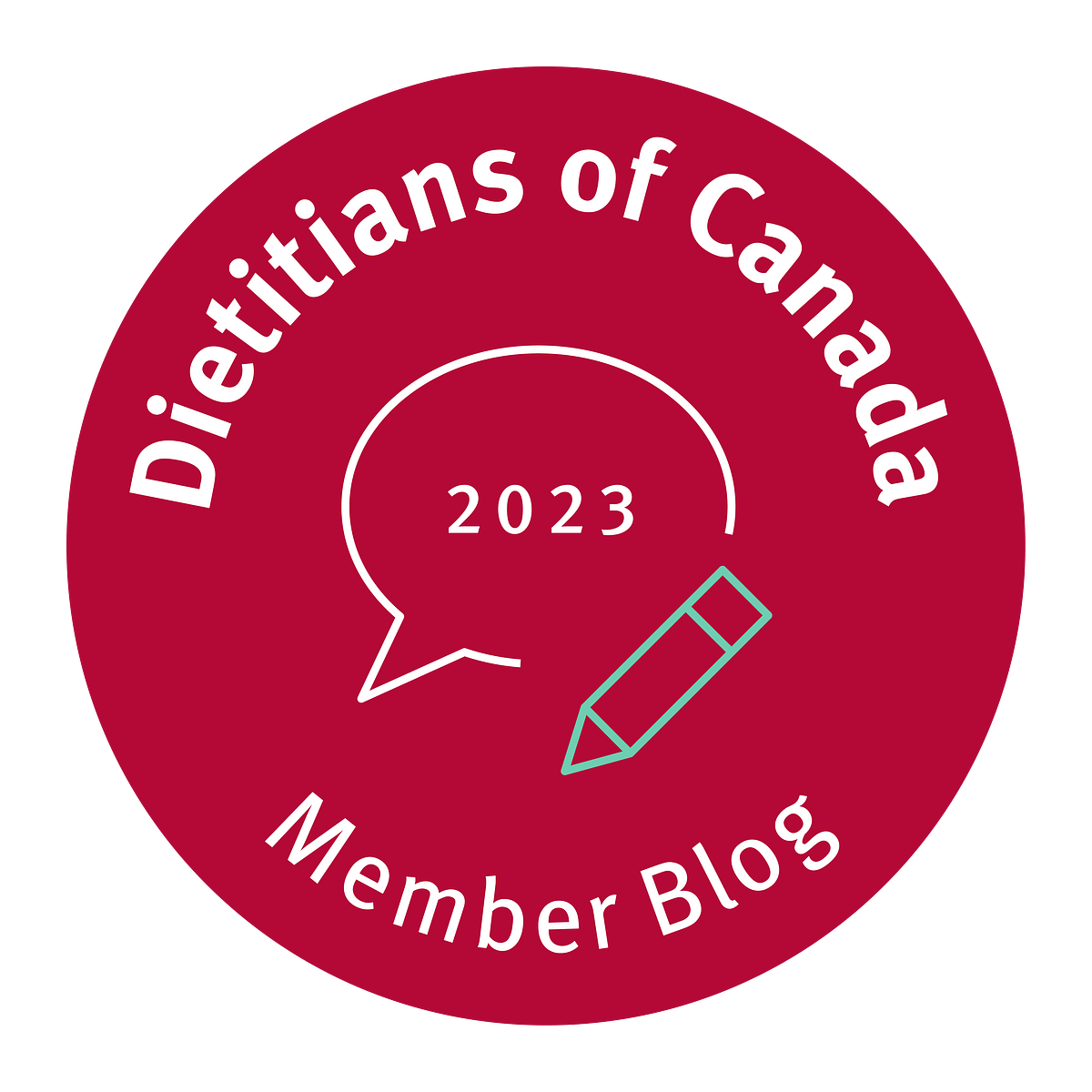
Can you believe that we’re into week 7 of physical distancing and the COVID quarantine? If you’re feeling stressed, you’re not alone.
In fact, a recent poll by Angus Reid found that 50% of Canadians say their mental health has worsened, feeling worried and anxious.
First of all, please know that there are many support resources available online to help you manage stress and anxiety during these tough times. Regular exercise, meditation and other healthy stress busting behaviours can help. Talk to a health care professional if you need some support.
As a dietitian, here are 5 key nutrients and foods to add to your plate which can help you manage stress.

OR watch my 1-minute video clip below.
Carbs, especially whole grain carbs
Carbs help trigger the production of serotonin. This is the feel good chemical in the brain (a neurotransmitter). Serotonin is made in brain from the amino acid tryptophan. This is a small amino acid and has a tough time getting into the brain.
When you eat a meal that’s mostly carbs, it triggers the insulin to clear the bigger amino acids from your bloodstream, allowing tryptophan to get into the brain and make serotonin. Overall, serotonin helps you to feel calm.
Some good whole grain carb choices are:
- brown rice
- whole wheat bread, whole wheat pasta
- quinoa
Vitamin B6
Vitamin B6 also helps our body make serotonin. This vitamin is found in a wide range of foods, so it’s important to eat a variety of foods. Some of the best foods for vitamin B6 are:
- chicken, turkey, meat, fish like salmon
- chickpeas, pistachio nuts, sunflower seeds
- potatoes, bananas, avocados
Magnesium
When we are stressed, our body (adrenal glands) releases cortisol which is a stress hormone. Cortisol actually depletes the body of magnesium. So we need to make sure we’re getting enough magnesium when you’re feeling stressed.
Some of the best foods for magnesium are:
- leafy greens like spinach, kale and Swiss chard
- nuts and seeds like almonds, pine nuts and sunflower seeds
- whole grains like whole wheat bread (Fun fact: whole wheat bread contains 4x more Mg than white bread)
- dark chocolate (a 30 g serving offers 15-20% of your daily requirements for magnesium!)
Omega-3 fats
You may already know that omega-3 fats are good for our heart health. But did you know that the animal sources of omega-3 fats also help to boost our mood!
Some of the best sources of omega-3 fats are:
- fatty fish like salmon, trout, arctic char, sardines. Try to eat fatty fish at least twice a week.
- omega-3 enriched eggs
Tea
Tea contains a special amino acid called L– theanine. This actually triggers the release of another neurotransmitter in the brain (called GABA or gamma-amino-butyric-acid) which gives you a relaxed feeling. Black tea, green tea, white tea and oolong tea all contain this special amino acid.
Stay well and stay safe. We are all in this together to get through the COVID-19 crisis.

